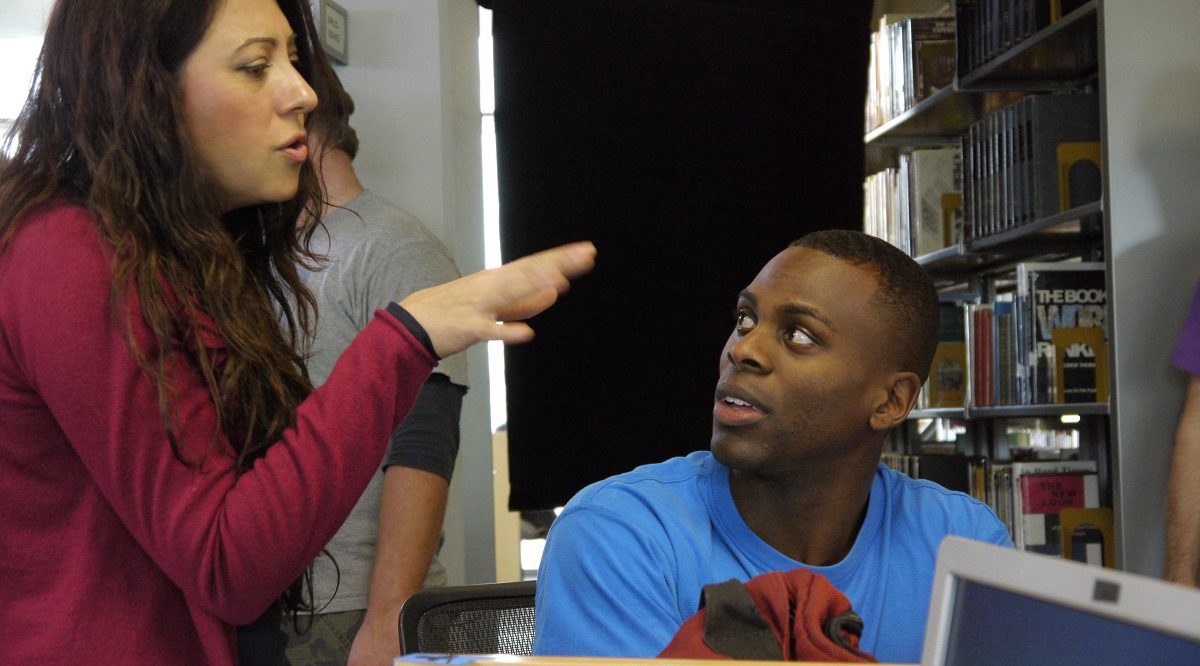Award-winning Actor, Producer and Casting Director GERALD WEBB brought a lot of hot food to the table at the Burbank International Film Festival’s day of free industry seminars. He’s been one of the country’s most innovative DJ’s, having created the first method for DJ’s to scratch a CD like a record. By the late 90’s he “fully embraced his love of performance and began seriously acting.” In other words, he did a zillion auditions. Fast forward eight years, and Webb had garnered 80+ TV and film credits. In ’09, he cast his first movie, so impressing the studio that they hired him as their in-house casting director. In 2011, he became a successful producer. Webb’s walked the talk about taking charge and working hard. And his stones of difficulty now have pearly coats of hard-won insights.
Webb’s Word on Writing
- 1. Be true to the genre. If it’s a superhero film, audiences expect the superhero to get beat up but then triumph in the end. Don’t disappoint them.
2. Be true to your story’s setting. Does your story take place in a city where the women outnumber the men, or where there are different races and ethnicities? Then your story should be authentic and reflect these diversities.
3. Read aloud the dialog you’ve written. If you’re like many writers, you have a strong story but much of your dialog may be suspect. Reading aloud the dialog will red flag the lines ringing false to the ear.
4. Be budget aware. Don’t write for budget on the first draft. But budget awareness should inform your rewrites. Can several different locations be combined into one? Can several minor characters be combined? Trusted friends can help you find these and other ways to tell a story that’s economical with money as well as words.
Webb’s Word on Auditioning
1. Be professional. Show up on time. Have your head shot. Bring the sides. Fix your hair. Don’t look at the floor. Listen. A lot of would-be actors neglect these basics, and they don’t have the excuse of being rank beginners. Don’t be in that crowd.
2. Learn the lost art of script analysis. Strong choices aren’t just making up stuff. They are justified by the text. So read the script. (And don’t answer yes to the director if you haven’t. You’ll be found out.) Then analyze the whole script, not just your character’s lines.
3. Know thyself. You have to be really honest with yourself and where you are as an actor and as a person. Acting is not faking. It’s embodying the truth of your character and their situation. You can’t embody the truth if you don’t acknowledge where you are in your journey.
4. Know the tone of the show. Hopefully Webb won’t mind me sneaking in Casting Director Michael Testa’s admonition to figure out the overall tone of the show you may be auditioning for. If you’re supposed to be in a small town, for example, are you talking too fast, too contemporary?
5. Don’t play it safe. If you’re an actor and you haven’t blown an audition, you’re doing something wrong. Maybe you aren’t taking the kind of chances that would bring out the full range of your talent. Take them! Be willing to lose the audition battle to win the career war.
6. Not all feedback is verbal. Not getting callbacks is part of your feedback. Notice that “feedback” is not spelled “f-l-a-t-t-e-r-y.”
Webb’s Word on Producing
1. Embrace the Low-Budget University. You can learn a lot on low-budget films if you’re willing to do the work, wearing multiple hats.
2. Get the money up front from distributors. Get as much of it as you can, and then be prepared to be content with it. Because chances are, you’ll never see any of the other money.





















